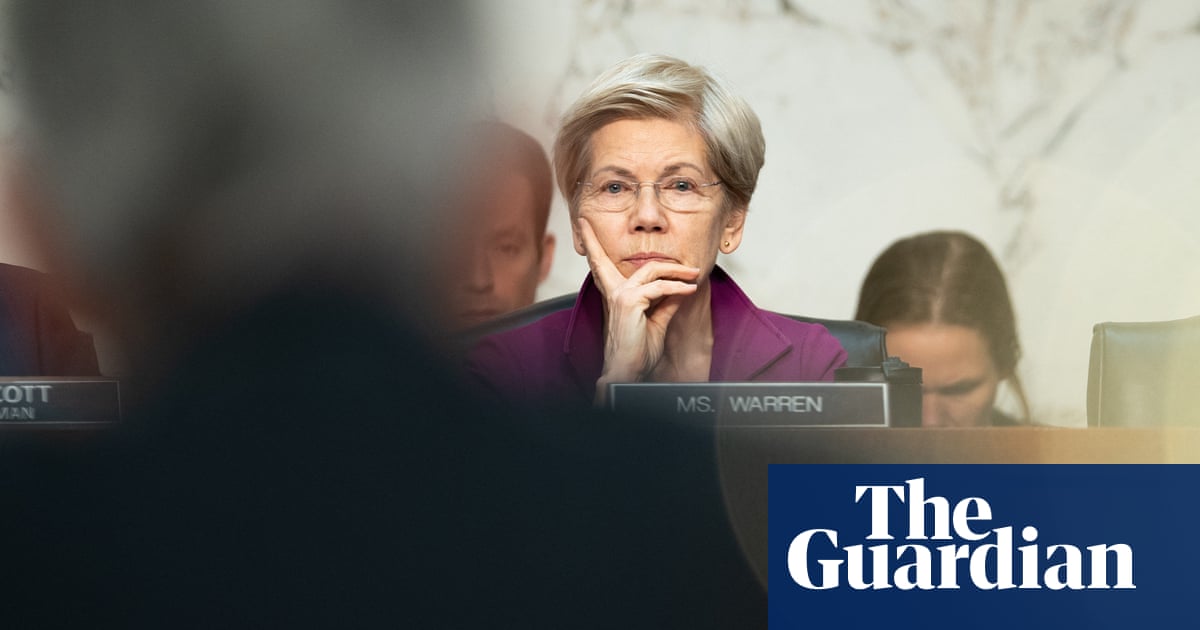Employees ofElon Musk’s“department of government efficiency” (Doge) own lucrative stock in companies that stand to directly benefit from their work gutting federal agencies, Democratic senators have alleged.
The potential ethics violations merit an investigation by the justice department and other oversight bodies, urges a letter co-authored by senatorsElizabeth Warrenof Massachusetts, Ron Wyden of Oregon and Jack Reed of Rhode Island and obtained by the Guardian.
“We write regarding new reports that Doge employees at the treasury, Internal Revenue Service (IRS), and the Consumer Financial Protection Bureau (CFPB) have been engaged in the dismantling of these agencies while holding hundreds of thousands of dollars of stock in private companies benefitting from these individuals’ efforts to eliminate key programs, staff, and policies,” the senators state.
Doge was launched in January with a mission to cut wasteful spending, slash federal regulations and improve government software and IT systems.It has about 79 appointed employeesand 10 seconded from other agencies. Many are young software engineers who worked for Musk’s companies and have no prior government experience.
Recent media reports have alleged that their actions aligned with the financial interests of the companies in which they held stock. This could constitute violations of an ethics law that prohibits federal employees from participating in matters in which they have a personal financial interest. A wilful violation of this law carries penalties including fines and imprisonment.
Warren and her Senate colleagues argue: “This poses a clear conflict of interest and potential criminal violation of federal ethics law, which bars any federal government employee from participat[ing] personally and substantially … [in any] particular matter in which [they] … ha[ve] a financial interest.”
The letter – addressed toPam Bondi, the attorney general, as well as Jamieson Greer, acting director of the Office of Government Ethics, and inspectors general within the Treasury, IRS and Federal Reserve – details three specific cases.
Tom Krause, the Doge team leader at Treasury, reportedly holds substantial stock in major financial institutions – including JPMorgan Chase and Bank of America – that do business with or provide services to Treasury. He also owns shares in the tech giants Google, Oracle and Amazon while leading treasury’s IT modernisation efforts. A government ethics expertdescribed this to Politicoas “a massive, glaring red flag of a conflict of interest”.
Krause, Todd Newnam and Linda Whitridge of the treasury Doge team reportedly own shares in Intuit (parent of TurboTax), a company actively opposing the IRS’s free tax filing programme Direct File. The letter notes that Musk had previously claimed to have “deleted” a team involved in Direct File development. The senators find it “deeply disturbing if Doge employees with a financial stake in Intuit were involved with overseeing and dismantling the Direct File initiative”.
ProPublicareported that Gavin Kliger, a CFPB Doge aide, was warned by ethics lawyers against holding stock in companies forbidden by the CFPB, such as Apple, Tesla, Alphabet and cryptocurrencies, since they are subject to CFPB examination. Yet he reportedly take part in mass layoffs at the agency, including the ethics lawyers who warned him.
The letter notes that “a defanged and downsized consumer watchdog is unlikely to aggressively regulate those and other companies, freeing them of compliance costs and the risk associated with examinations and enforcement actions. That in turn could boost their stock prices and benefit … Kliger.”
An expert is quoted as describing Kliger’s actions as “look[ing] like a pretty clear-cut violation” of the federal criminal conflict-of-interest statute.
The senators argue that these cases suggest a widespread issue within Doge, where ethics rules are disregarded for personal financial gain, undermining the integrity of government decision-making. “Together, these three examples underscore what appears to be a pervasive problem withElon Muskand Doge employees trampling ethics rules and laws to benefit their own pockets at the expense of the American public.”
The letter explicitly calls for a broad review by the inspectors general regarding “illegal or inappropriate efforts” and an investigation by the justice department into whether “these and other Doge representatives may have violated federal ethics law by abusing their official roles for the benefit of private companies in which they have a vested financial interest”.
